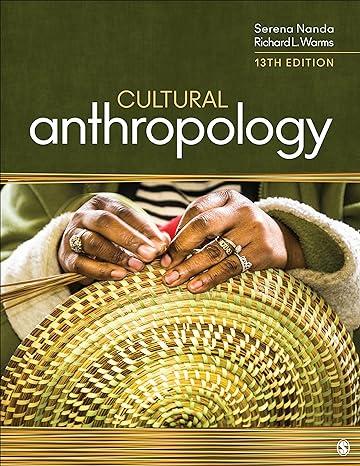What are the responsibilities of the governments toward the stateless? Do the United States and other powerful
Question:
What are the responsibilities of the governments toward the stateless? Do the United States and other powerful nations have responsibilities toward groups such as the Rohingya?
Following the emergence of the nation-state, the world has been divided into countries with agreed-upon national boundaries. Although border disputes continue to exist, the result of this division is that, in principle, every person in the world lives within the borders of a nationstate. And, in principle, every person is a citizen of such a state. However, in practice, there are significant exceptions to this rule. No one knows the number of stateless people in the world. The United Nations High Commission on Refugees reports 3.9 million but considers this an underestimate. A global figure of at least 10 million people in the world is often used (Nahmias, 2020). The stateless are denied a nationality.
There are numerous ways in which individuals and groups can become stateless. Individuals may become stateless because of gaps in nationality laws. For example, in Kuwait, if a child's mother is not Kuwaiti and is unmarried, the child does not have Kuwaitic citizenship and may be stateless (Mahdavi, 2015, p. 73). A second way statelessness can occur is if the country where a child is born does not permit nationality based on birth alone. Only 33 of the roughly 195 countries in the world have jus solis ("law of the soil"), the legal principle that grants automatic citizenship to everyone born within their borders (Cabaniss, 2015). Twenty-seven countries restrict the rights of women to pass their citizenship on to their children (Theodorou, 2014).
Statelessness may occur as the result of the emergence of new states or changes in borders. It can also occur when states declare that entire groups or peoples do not belong to the state. The most famous recent case of this is the Rohingya Muslims. In the mid-2000s, more than 1.1 million Rohingya lived in Myanmar and had no other citizenship. However, the state, which is predominantly Buddhist, has declared them "nonnationals" and views them as illegal immigrants.
Step by Step Answer:






